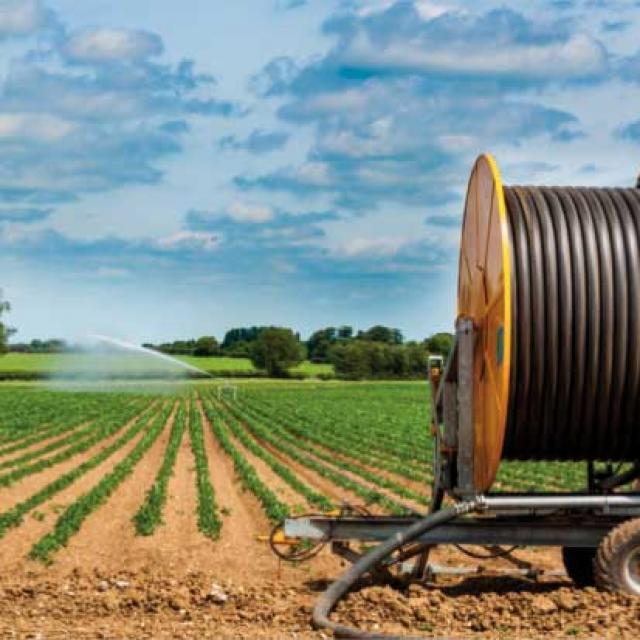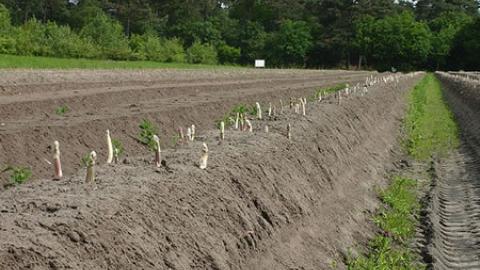After having interviewed European manufacturers, distributors and installers of irrigation equipment, we were able to understand the impact Covid 19 is having on the irrigation industry in Europe. This survey was conducted during the last week of March, i.e. approximately two weeks after the confinement rules began in most of the European countries.

Government measures and continuing with agricultural and landscaping activities
In the agricultural sector, all activities are permitted in order to protect the food chain:
In fact, “the agricultural sector is considered as being an essential activity”. The manufacturers of irrigation equipment form a part of the agribusiness chain and the factories can continue with production. The same applies to the wholesalers, who continue to operate, and the retailers, who remain open.
As far as the producers (farmers) are concerned, “we will soon have the problem of a lack of labor because it is impossible for the foreign seasonal workers to travel”. Yet they represent a very large portion of the production workers: 15,000 to 20,000 people each year each in France. The other European countries (Italy, Spain…) will have the same problem.
Furthermore, the consumers rushed out to buy pasta and rice, and “the consumption of perishable food items such as fruit and vegetables has fallen, amid fears of contamination.” In certain countries, such as France, markets are not allowed to open. However, this is an important sales channel for the producers of fruit and vegetables. Certain markets have been allowed to re-open, with special permission, but these are the exception.
Finally, some European countries may suffer more than others, such as Croatia, where “most of the fruit and vegetable production is consumed by the tourism sector, which is shut down”. The producers run the risk of incurring heavy losses and this will have an impact on the distributers.
The governments of the more developed countries (France, Spain, Italy, Holland) will find a way of protecting their farmers but the governments of countries in the East will not have the resources.
In the landscaping sector, business continues at a slower pace in most European countries
As far as the installers are concerned, there is nothing to stop the teams from working outdoors, but the work they can do is restricted. In Spain, the installers can work but this primarily relates to the maintenance and troubleshooting of golf courses, sports fields or municipal sites”. In Italy, the installers can work, but “they have to respect the new public health rules, i.e. wearing a mask, complying with social distancing and respecting the health requirements for the workforce.”
In France, after issuing conflicting announcements, the government has finally authorized the contracting teams to go to work, but some of them had already completely interrupted their activities when the lockdown measures were announced. And the unclear legal situation in which they find themselves at the moment prevents them from returning to work with confidence. Moreover, some installers have major projects all over France and “it is very difficult to find accommodation and food services for their teams”.
The garden centers are partially closed in France and open in the other European countries
Forced to stay at home, the Europeans are trying to keep busy and do some gardening. The month of March is the time to buy ornamental plants for the garden or plants for the vegetable plot.
In France, following the contradictory announcements, the garden centers have the right to open exclusively for selling animal food and seeds and vegetable garden plants, considered to be essential items. The same applies to horticulture, provided, of course, that precautionary measures are implemented such as putting up protective barriers or “shields”, just like the supermarkets. On the other hand, the sale of all other products is forbidden. Nevertheless, the drive systems and online sales are permitted.
In the other European countries (Belgium, Germany, Holland and even Italy since 3rd April), the garden centers are fully open.
Regarding the manufacturers:
The factories have been kept running with a decline in business expected for the second quarter of 2020, particularly in parks and gardens
The factories continue to operate, sometimes at 100% capacity.
According to a European pivot manufacturer: “our factories are still running, without any reduction so far. Agribusiness is continuing and even gaining strength in this period, and we are fortunate to still be receiving orders from our retailers. Furthermore, China and Asia, which had come to a complete halt, are starting to recover.”
The same applies to the Italian drip irrigation sector: “Operations are still continuing in order to protect the agri-business chain. The factories are still running and there has been no reduction in production. We are still receiving orders.”
However, according to a Greek drip irrigation manufacturer: “Production has fallen by 30%. The decline will probably continue during the whole of the second quarter. As far as orders are concerned, we are receiving export orders. Meanwhile, the national sales department has had to face up to a 35% drop in orders.”
According to a leading globalized drip irrigation manufacturer, who has a branch in Europe, and with a presence in both the agricultural and parks and gardens markets: “Manufacturing is continuing on all our sites; nevertheless, it is 5 to 10% down on expectations. We are still receiving orders from the distributors, but they are 20% lower than the forecasts.”
Finally, according to an American parks and gardens manufacturer, who has a branch in Europe: “We are continuing to manufacture and there has been no drop in production up to now. However, we have had cancellations of orders in some countries, such as France, Portugal, Israel and Ukraine”.
In fact, two manufacturers of remote irrigation management solutions are bemoaning “the factories running at low capacities” “at a reduced level” or “at only 50%”.
As far as the forecasts are concerned, all manufacturers agree in saying that the second quarter will not be good, “20 and 50% down on normal turnover” and they are all “worried about the future given that it is difficult to see how the virus will evolve”.
Measures adopted for the employees: working from home for those who can and protection measures for employees who must go to the workplace.
As far as the employees are concerned, for all companies together, those who work in offices are encouraged to work at home (service marketing, sales, human resources, engineering…). Some companies have established a guide for working at home, with regular meetings by videoconference.
On the other hand, the employees who work in manufacturing or logistics will continue to travel to their workplace.
Some companies have reorganized production in order to comply with the safety rules:
According to an Italian drip irrigation manufacturer: “we have introduced physical barriers in the production plant; an alcoholic gel is available at all doors, we clean and disinfect the buildings, wear masks and maintain a minimum distance between employees who are in common areas…”.
When production drops, some companies have adapted or reduced the employees’ working hours. That is the case with a Danish manufacturer of remote irrigation management systems “The production plant is operating at 50% so the employees who are in the factory are working part time; they still receive their full salary”. Furthermore, some manufacturers have “adapted the working shifts in the factories so that there are not too many employees in the workplace at the same time”.
Depending on the country, the manufacturers have resorted to “part time” or “short time” (France) working arrangement or some employers have even “asked certain employees to take days off”. The companies are studying the aid packages offered by their governments so that they can reduce the employment costs.
The manufacturers claim that «they have not made any employees redundant” for the time being.
Slower transport and increased costs
The manufacturers have seen «transport costs increasing over the last two months” and “reduced supply”.
They have also observed “that there is less transatlantic transport from the United States to Europe and that the costs have increased”. They further note that the European transport system is “experiencing restrictions”. Some of them also remark that “international transport is slower (taking to 7 days longer).”
Regarding the distributors
Most employees are working at home (sales staff, marketing, design, assistants….), except for those who work in the warehouses, who must receive and dispatch the merchandise. For those who come to the office “strict measures have been adopted: no customer is allowed to go to the office and the consignments must comply with the safety precautions”.
The distributors explain that they “are still receiving orders” but “they are holding back on pre-season supplies in order to adjust deliveries and preserve their cash flow”. Furthermore, “those distributors who also have retail outlets experienced a fall in their sales due to the travel restrictions”.
As far as supplies are concerned, the distributors say that they “are continuing to receive merchandise but often with an additional delay”. Furthermore, according to an Italian distributor: “the galvanization companies are not authorized to work, nor are the plastic molding firms”.
As far as the transport sector is concerned, a Croatian distributor explained that “the domestic delivery services are running at a slower pace”. A French distributor explained “that some regions are more problematic, such as Corsica and Alsace. And that the transport costs have increased by 15%.” Another French distributor stated that “the customers are not always there to receive the merchandise”.
Regarding the Italian distributor, he explained that “a few transport problems have been encountered, but only at international level because national transport systems are free”.
Furthermore, they are expecting a “fall in turnover in the second quarter of between 40 and 50% and even more in the parks and gardens sector than in the agricultural sector”.



